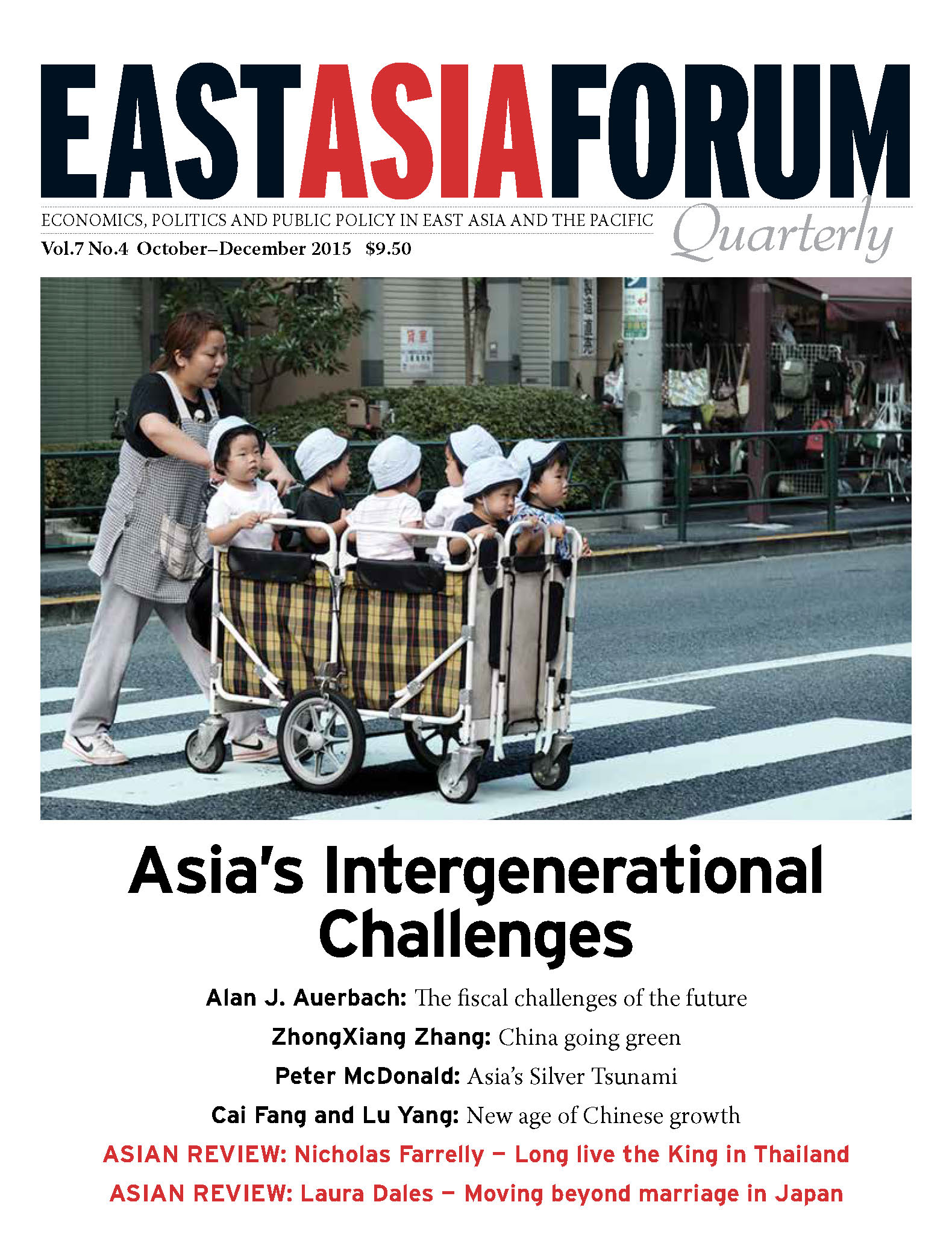
Asia's Intergenerational Challenges
Volume 7, No 4: October - December, 2015
The coming decades will present significant intergenerational policy challenges, as well as opportunities, for economies throughout the Asia Pacific region. Economic prosperity and its sustainability will be influenced by how we respond to a number of core drivers, including the re-emergence of Asia as a major centre of the global economy, rapid demographic change, environmental pressures and technological advances. These drivers will put additional pressure on the fiscal sustainability and on the institutions that have contributed greatly to economic performance to date. These things are often taken for granted but will have significant implications for future economic prosperity throughout the region. Already a growth engine of the global economy, Asia will be home to the largest middle class population in the world before too long. The associated opportunities and the risks make it necessary that we have the right global, regional and country policy frameworks.The Asian century will also see rapid demographic change. The ageing of populations throughout the region and changing community expectations about the provision of public services, will see increased demand for health and aged care. The fiscal policy responses to these pressures are yet to be figured out. Climate change and the responses to it will also define this century. To avoid catastrophic climate change substantial and sustained reductions of greenhouse gas emissions are needed. Unfortunately some climate change will now be unavoidable and economies will also need to adapt to higher temperatures. How countries, such as China, transition to high-income status will also be crucial. Policy frameworks that help facilitate industrial upgrading, innovation and investment in human capital will be important to drive productivity and avoid the so-called middle income trap.These are the questions with which this issue of East Asia Forum Quarterly deals. One common theme highlighted in the articles is that the economies throughout the region need to begin preparing for the challenges and opportunities of the future. The policy actions taken or missed today will have a significant bearing on future outcomes. This EAFQ’s Asian Review feature deals with important and related issues: sex and gender in Japan; the future of Thai politics; Asia’s response to the challenge of climate change and opportunities for green growth in Asia.
Download
The coming decades will present significant intergenerational policy challenges, as well as opportunities, for economies throughout the Asia Pacific region. Economic prosperity and its sustainability will be influenced by how we respond to a number of core drivers, including the re-emergence of Asia as a major centre of the global economy, rapid demographic change, environmental pressures and technological advances. These drivers will put additional pressure on the fiscal sustainability and on the institutions that have contributed greatly to economic performance to date. These things are often taken for granted but will have significant implications for future economic prosperity throughout the region. Already a growth engine of the global economy, Asia will be home to the largest middle class population in the world before too long. The associated opportunities and the risks make it necessary that we have the right global, regional and country policy frameworks.The Asian century will also see rapid demographic change. The ageing of populations throughout the region and changing community expectations about the provision of public services, will see increased demand for health and aged care. The fiscal policy responses to these pressures are yet to be figured out. Climate change and the responses to it will also define this century. To avoid catastrophic climate change substantial and sustained reductions of greenhouse gas emissions are needed. Unfortunately some climate change will now be unavoidable and economies will also need to adapt to higher temperatures. How countries, such as China, transition to high-income status will also be crucial. Policy frameworks that help facilitate industrial upgrading, innovation and investment in human capital will be important to drive productivity and avoid the so-called middle income trap.These are the questions with which this issue of East Asia Forum Quarterly deals. One common theme highlighted in the articles is that the economies throughout the region need to begin preparing for the challenges and opportunities of the future. The policy actions taken or missed today will have a significant bearing on future outcomes. This EAFQ’s Asian Review feature deals with important and related issues: sex and gender in Japan; the future of Thai politics; Asia’s response to the challenge of climate change and opportunities for green growth in Asia.
